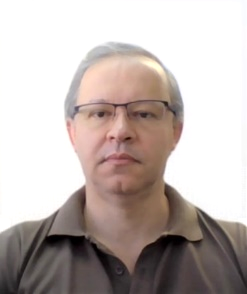
Topical Collection on "New Advances for Sustainable High-Performance Building Materials and Circular Economy"
Deadline for manuscript submissions: July 31, 2026
Chief-Collection Editor:

Name: Dr. Paulo Santos
Affiliation: Department of Civil Engineering, University of Coimbra, 3030-788 Coimbra, Portugal
E-Mail: pfsantos@dec.uc.pt
Scopus personal homepage: https://www.scopus.com/authid/detail.uri?authorId=55605780628
Co-Collection Editors:
Name: Dr. Daniel Ferrández-Vega
Affiliation: Departamento de Tecnología de la Edificación, Escuela Técnica Superior de Edificación, Universidad Politécnica de Madrid, 28040 Madrid, Spain
E-Mail: daniel.fvega@upm.es
Scopus personal homepage: https://www.scopus.com/authid/detail.uri?authorId=56467952400
Name: Dr. Alicia Zaragoza-Benzal
Affiliation: Escuela Técnica Superior de Edificación, Universidad Politécnica de Madrid, 28040 Madrid, Spain
E-Mail: alicia.zaragoza@upm.es
Scopus personal homepage: https://www.scopus.com/authid/detail.uri?authorId=57670034200
Topical Collection Information:
Dear Colleagues,
In alignment with global imperatives such as the Ellen MacArthur Foundation’s circular economy agenda and the United Nations’ Sustainable Development Goals, this Special Issue seeks cutting-edge contributions that bridge material innovation and systemic sustainability in construction. While traditional building practices follow a linear “take–make–dispose” flow, this collection aims to spotlight work that embraces closed-loop design, resource recovery, and minimized waste—from material sourcing to decommissioning .
We invite high-impact original research, comprehensive reviews, case studies, short communications, and editorials on:
- Development and characterization of low-clinker, low-carbon binders and geopolymers;
- Novel high-performance composites reinforced with fibers and nanomaterials;
- Integration of recycled, up-cycled, and waste-derived aggregates and admixtures;
- Self-healing, smart, and thermal-management components;
- Modular or disassemblable construction systems supporting reuse;
- Digital enablers—such as AI-based design, digital twins, and material passports—facilitating material traceability and circularity ;
- Holistic life cycle assessment (LCA), durability metrics, repair methodologies, and end-of-life circularity strategies.
By emphasizing synergies between structural performance and environmental stewardship, this Special Issue will illuminate how advanced materials, stakeholder collaboration, industrial symbiosis, and innovative business models can collectively drive sustainable built environments. All manuscripts will undergo rigorous peer review and be published open access to ensure global visibility and impact. We welcome your contributions to shape a resource-efficient, resilient, and regenerative future in construction materials science.
Dr. Paulo Santos
Dr. Daniel Ferrández-Vega
Dr. Alicia Zaragoza-Benzal
Collection Editor(s)
Keywords:
- Sustainable high-performance materials
- Circular economy in construction
- Low-carbon binders and geopolymers
- Fiber- and nano-reinforced composites
- Recycled/waste-derived aggregates
- Self-healing and smart materials
- Modular/disassemblable construction systems
- Lifecycle assessment and durability
- Material passports and digital twins
- Repair, reuse, and end-of-life strategies






